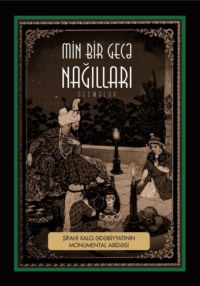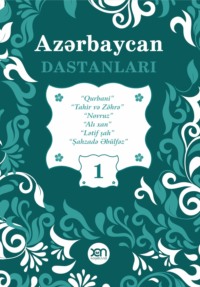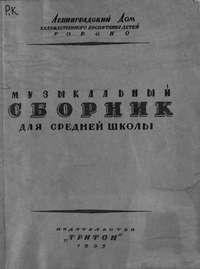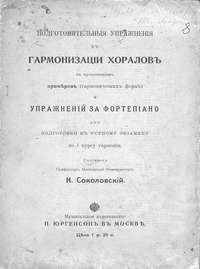 полная версия
полная версияA plain and literal translation of the Arabian nights entertainments, now entituled The Book of the Thousand Nights and a Night. Volume 7 (of 17)
She pursued, It hath reached me, O auspicious King, that the old woman charged the King’s son, saying, “I will let thee know two days beforehand of the King’s daughter going down to the garden: do thou hide thee in some place or other; and, when thou espiest her, come forth and show thyself to her. When she seeth thee, she will fall in love with thee; for thou art fair to look upon and love covereth all things. So keep thine eyes cool and clear278 and be of good cheer, O my son, for needs must I bring about union between thee and her.” The young Prince kissed her hand and thanked her and gave her three pieces of Alexandrian silk and three of satin of various colours, and with each piece, linen for shifts and stuff for trousers and a kerchief for the turband and fine white cotton cloth of Ba’albak for the linings, so as to make her six complete suits, each handsomer than its sister. Moreover, he gave her a purse containing six hundred gold pieces and said to her, “This is for the tailoring.” She took the whole and said to him, “O my son, art thou not pleased to acquaint me with thine abiding-place and I also will show thee the way to my lodging?” “Yes,” answered he and sent a Mameluke with her to note her home and show her his own house. Then he rose and bidding his slaves shut the shop, went back to the Wazir, to whom he related all that had passed between him and the old woman, from first to last. Quoth the Minister, “O my son, should the Princess Hayat al-Nufus come out and look upon thee and thou find no favour with her what wilt thou do?” Quoth Ardashir, “There will be nothing left but to pass from words to deeds and risk my life with her; for I will snatch her up from amongst her attendants and set her behind me on a swift horse and make for the wildest of the wold. If I escape, I shall have won my wish and if I perish, I shall be at rest from this hateful life.” Rejoined the Minister, “O my son, dost thou think to do this thing and live? How shall we make our escape, seeing that our country is far distant, and how wilt thou deal thus with a King of the Kings of the Age, who hath under his hand an hundred thousand horse, nor can we be sure but that he will despatch some of his troops to cut off our way? Verily, there is no good in this project which no wise man would attempt.” Asked Ardashir, “And how then shall we do, O Wazir of good counsel? For unless I win her I am a dead man without a chance.” The Minister answered, “Wait till to-morrow when we will visit this garden and note its condition and see what betideth us with the care-taker.” So when the morning morrowed they took a thousand dinars in a poke and, repairing to the garden, found it compassed about with high walls and strong, rich in trees and rill-full leas and goodly fruiteries. And indeed its flowers breathed perfume and its birds warbled amid the bloom as it were a garden of the gardens of Paradise. Within the door sat a Shaykh, an old man on a stone bench and they saluted him. When he saw them and noted the fairness of their favour, he rose to his feet after returning their salute, and said, “O my lords, perchance ye have a wish which we may have the honour of satisfying?” Replied the Wazir, “Know, O elder, that we are strangers and the heat hath overcome us: our lodging is afar off at the other end of the city; so we desire of thy courtesy that thou take these two dinars and buy us somewhat of provaunt and open us meanwhile the door of this flower garden and seat us in some shaded place, where there is cold water, that we may cool ourselves there, against thou return with the provision, when we will eat, and thou with us, and then, rested and refreshed, we shall wend our ways.” So saying, he pulled out of his pouch a couple of dinars and put them into the keeper’s hand. Now this care-taker was a man aged threescore and ten, who had never in all his life possessed so much money: So, when he saw the two dinars in his hand, he was like to fly for joy and rising forthwith opened the garden gate to the Prince and the Wazir, and made them enter and sit down under a wide-spreading, fruit-laden, shade-affording tree, saying, “Sit ye here and go no further into the garden, for it hath a privy door communicating with the palace of the Princess Hayat al-Nufus.” They replied, “We will not stir hence.” Whereupon he went out to buy what they had ordered and returned after awhile, with a porter bearing on his head a roasted lamb and bread. They ate and drank together and talked awhile, till, presently, the Wazir, looking about him in all corners right and left, caught sight of a lofty pavilion at the farther end of the garden; but it was old and the plaster was peeled from its walls and its buttresses were broken down. So he said to the Gardener, “O Shaykh, is this garden thine own or dost thou hire it?”; and he replied, “I am neither owner nor tenant of the garden, only its care-taker.” Asked the Minister, “And what is thy wage?” whereto the old man answered, “A dinar a month,” and quoth the Wazir, “Verily they wrong thee, especially an thou have a family.” Quoth the elder, “By Allah, O my lord; I have eight children and I”—The Wazir broke in, “There is no Majesty and there is no Might save in Allah, the Glorious, the Great! Thou makest me bear thy grief my poor fellow! What wouldst thou say of him who should do thee a good turn, on account of this family of thine?” Replied the old man, “O my lord, whatsoever good thou dost shall be garnered up for thee with God the Most High!” Thereupon said the Wazir, “O Shaykh, thou knowest this garden of thine to be a goodly place; but the pavilion yonder is old and ruinous. Now I mean to repair it and stucco it anew and paint it handsomely, so that it will be the finest thing in the garth; and when the owner comes and finds the pavilion restored and beautified, he will not fail to question thee concerning it. Then do thou say:—O my lord, at great expense I set it in repair, for that I saw it in ruins and none could make use of it nor could anyone sit therein. If he says:—Whence hadst thou the money for this? reply, I spent of my own money upon the stucco, thereby thinking to whiten my face with thee and hoping for thy bounties. And needs must he recompense thee fairly over the extent of thine expenses. To-morrow I will bring builders and plasterers and painters to repair this pavilion and will give thee what I promised thee.” Then he pulled out of his poke a purse of five hundred dinars and gave it to the Gardener, saying, “Take these gold pieces and expend them upon thy family and let them pray for me and for this my son.” Thereupon the Prince asked the Wazir, “What is the meaning of all this?” and he answered, “Thou shalt presently see the issue thereof.”–And Shahrazad perceived the dawn of day and ceased to say her permitted say.
Now when it was the Seven Hundred and Twenty-sixth Night,She resumed, It hath reached me, O auspicious King, that when the Wazir gave five hundred ducats to the old Gardener, saying, “Take these gold pieces and expend them upon thy family and let them pray for this my son,” the old man looked at the gold and his wits fled; so he fell down at the Wazir’s feet, kissing them and invoking blessings on him and his son; and when they went away, he said to them, “I shall expect you to-morrow: for by Allah Almighty, there must be no parting between us, night or day.” Next morning the Wazir went to the Prince’s shop and sent for the syndic of the builders; then he carried him and his men to the garth, where the Gardener rejoiced in their sight. He gave them the price of rations279 and what was needful to the workmen for the restoration of the pavilion, and they repaired it and stucco’d it and decorated it. Then said the Minister to the painters, “Harkye, my masters, listen to my words and apprehend my wish and my aim. Know that I have a garden like this, where I was sleeping one night among the nights and saw in a dream a fowler set up nets and sprinkle corn thereabout. The birds flocked to pick up the grain, and a cock-bird fell into the net, whereupon the others took fright and flew away, and amongst the rest his mate: but, after awhile, she returned alone and picked at the mesh that held his feet, till she set him free and they flew away together. Now the fowler had fallen asleep and, when he awoke, he found the net empty; so he mended it and strewing fresh grain sat down afar off, waiting for game to fall into that snare. Presently the birds assembled again to pick up the grains, and amongst the rest the two pigeons. By-and-by, the hen-bird fell into the net, when all the other birds took fright at her and flew away, and her husband flew with them and did not return; whereupon the fowler came up and taking the quarry, cut her throat. Now, when her mate flew away with the others, a bird of raven seized him and slew him and ate his flesh and drank his blood, and I would have you pourtray me the presentment of this my dream, even as I have related it to you, in the liveliest colours, laying the fair scene in this rare garden, with its walls and trees and rills, and dwell especially on the fowler and the falcon. If ye do this I have set forth to you and the work please me, I will give you what shall gladden your hearts, over and above your wage.” The painters, hearing these words, applied themselves with all diligence to do what he required of them and wrought it out in masterly style; and when they had made an end of the work, they showed it to the Wazir who, seeing his so-called dream set forth as it was280 was pleased and thanked them and rewarded them munificently. Presently, the Prince came in, according to his custom, and entered the pavilion, unweeting what the Wazir had done. So when he saw the portraiture of the fowler and the birds and the net and beheld the male pigeon in the clutches of the hawk, which had slain him and was drinking his blood and eating his flesh, his understanding was confounded and he returned to the Minister and said, “O Wazir of good counsel, I have seen this day a marvel which, were it graven with needle-gravers on the eye-corners would be a warner to whoso will be warned?” Asked the Minister, “And what is that, O my lord?”; and the Prince answered, “Did I not tell thee of the dream the Princess had and how it was the cause of her hatred for men?” “Yes,” replied the Wazir; and Ardashir rejoined, “By Allah, O Minister, I have seen the whole dream pourtrayed in painting, as I had eyed it with mine own eyes; but I found therein a circumstance which was hidden from the Princess, so that she saw it not, and ’tis upon this that I rely for the winning of my wish.” Quoth the Wazir, “And what is that, O my son?”; and quoth the Prince, “I saw that, when the male bird flew away; and, leaving his mate entangled in the net, failed to return and save her, a falcon pounced on him and slaying him, ate his flesh and drank his blood. Would to Heaven the Princess had seen the whole of the dream and had beheld the cause of his failure to return and rescue her!” Replied the Wazir, “By Allah, O auspicious King, this is indeed a rare thing and a wonderful!” And the King’s son ceased not to marvel at the picture and lament that the King’s daughter had not beheld the dream to its end, saying in himself, “Would she had seen it to the last or might see the whole over again, though but in the imbroglio of sleep!” Then quoth the Wazir to him, “Thou saidst to me:—Why wilt thou repair the pavilion?; and I replied:—Thou shalt presently see the issue thereof. And behold, now its issue thou seest; for it was I did this deed and bade the painters pourtray the Princess’s dream thus and paint the male bird in the pounces of the falcon which eateth his flesh and drinketh his blood; so that when she cometh to the pavilion, she will behold her dream depicted and see how the cock-pigeon was slain and excuse him and turn from her hate for men.” When the Prince heard the Wazir’s words, he kissed his hands and thanked him, saying, “Verily, the like of thee is fit to be Minister to the most mighty King, and, by Allah, an I win my wish and return to my sire, rejoicing, I will assuredly acquaint him with this, that he may redouble in honouring thee and advance thee in dignity and hearken to thine every word.” So the Wazir kissed his hand and they both went to the old Gardener and said, “Look at yonder pavilion and see how fine it is!” And he replied, “This is all of your happy thought.” Then said they, “O elder, when the owners of the place question thee concerning the restoration of the pavilion, say thou:—’Twas I did it of my own monies; to the intent that there may betide thee fair favour and good fortune.” He said, “I hear and I obey”; and the Prince continued to pay him frequent visits. Such was the case with the Prince and the Wazir; but as regards Hayat al-Nufus, when she ceased to receive the Prince’s letters and messages and when the old woman was absent from her, she rejoiced with joy exceeding and concluded that the young man had returned to his own country. One day, there came to her a covered tray from her father; so she uncovered it and finding therein fine fruits, asked her waiting-women, “Is the season of these fruits come?” Answered they, “Yes.” Thereupon she cried, “Would we might make ready to take our pleasure in the flower-garden!”–And Shahrazad perceived the dawn of day and ceased saying her permitted say.
Now when it was the Seven Hundred and Twenty-seventh Night,She said, It hath reached me, O auspicious King, that the Princess, after receiving the fruit from her sire, asked, “Is the season of these fruits set in?”; and they answered, “Yes!” Thereupon she cried, “Would we might make ready to take our pleasure in the flower-garden!” “O my lady,” they replied, “thou sayest well, and by Allah, we also long for the garden!” So she enquired, “How shall we do, seeing that every year it is none save my nurse who taketh us to walk in the garden and who pointeth out to us the various trees and plants; and I have beaten her and forbidden her from me? Indeed, I repent me of what was done by me to her, for that, in any case, she is my nurse and hath over me the right of fosterage. But there is no Majesty and there is no Might save in Allah, the Glorious, the Great!” When her handmaids heard this, they all sprang up; and, kissing the ground between her hands, exclaimed, “Allah upon thee, O my lady, do thou pardon her and bid her to the presence!”; and quoth she, “By Allah, I am resolved upon this; but which of you will go to her, for I have prepared her a splendid robe of honour?” Hereupon two damsels came forward, by name Bulbul and Siwád al-’Ayn, who were comely and graceful and the principals among the Princess’s women, and her favourites. And they said, “We will go to her, O King’s daughter!”; and she said, “Do what seemeth good to you.” So they went to the house of the nurse and knocked at the door and entered; and she, recognising the twain, received them with open arms and welcomed them. When they had sat awhile with her, they said to her, “O nurse, the Princess pardoneth thee and desireth to take thee back into favour.” She replied, “This may never be, though I drink the cup of ruin! Hast thou forgotten how she put me to shame before those who love me and those who hate me, when my clothes were dyed with my blood and I well nigh died for stress of beating, and after this they dragged me forth by the feet, like a dead dog, and cast me without the door? So by Allah, I will never return to her nor fill my eyes with her sight!” Quoth the two girls, “Disappoint not our pains in coming to thee nor send us away unsuccessful. Where is thy courtesy uswards? Think but who it is that cometh in to visit thee: canst thou wish for any higher of standing than we with the King’s daughter?” She replied, “I take refuge with Allah: well I wot that my station is less than yours; were it not that the Princess’s favour exalted me above all her women, so that, were I wroth with the greatest of them, she had died in her skin of fright.” They rejoined, “All is as it was and naught is in anywise changed. Indeed, ’tis better than before, for the Princess humbleth herself to thee and seeketh a reconciliation without intermediary.” Said the old woman, “By Allah, were it not for your presence and intercession with me, I had never returned to her; no, not though she had commanded to slay me!” They thanked her for this and she rose and dressing herself accompanied them to the palace. Now when the King’s daughter saw her, she sprang to her feet in honour, and the old woman said, “Allah! Allah! O King’s daughter, say me, whose was the fault, mine or thine?” Hayat al-Nufus replied, “The fault was mine, and ’tis thine to pardon and forgive. By Allah, O my nurse, thy rank is high with me and thou hast over me the right of fosterage; but thou knowest that Allah (extolled and exalted be He!) hath allotted to His creatures four things, disposition, life, daily bread and death; nor is it in man’s power to avert that which is decreed. Verily, I was beside myself and could not recover my senses; but, O my nurse, I repent of what deed I did.” With this, the crone’s anger ceased from her and she rose and kissed the ground before the Princess, who called for a costly robe of honour and threw it over her, whereat she rejoiced with exceeding joy in the presence of the Princess’s slaves and women. When all ended thus happily, Hayat al-Nufus said to the old woman, “O my nurse, how go the fruits and growths of our garth?”; and she replied, “O my lady, I see excellent fruits in the town; but I will enquire of this matter and return thee an answer this very day.” Then she withdrew, honoured with all honour and betook herself to Ardashir, who received her with open arms and embraced her and rejoiced in her coming, for that he had expected her long and longingly. She told him all that had passed between herself and the Princess and how her mistress was minded to go down into the garden on such a day.–And Shahrazad perceived the dawn of day and ceased to say her permitted say.
Now when it was the Seven Hundred and Twenty-eighth Night,She continued, It hath reached me, O auspicious King, that the old woman betook herself to the Prince and told him all that had passed between herself and the Princess Hayat al-Nufus; and how her mistress was minded to go down into the garden on such a day and said to him, “Hast thou done as I bade thee with the Warder of the garden and hast thou made him taste of thy bounties?” He replied, “Yes, and the oldster is become my good friend: my way is his way and he would well I had need of him.” Then he told her all that had happened and of the dream-paintings which the Wazir had caused to be limned in the pavilion; especially of the fowler, the net and the falcon: whereat she joyed with great joy and said, “Allah upon thee, do thou set thy Minister midmost thy heart, for this that he hath done pointeth to the keenness of his wit and he hath helped thee to the winning thy wish. So rise forthright, O my son, and go to the Hammam-bath and don thy daintiest dress, wherein may be our success. Then fare thou to the Gardener and make shift to pass the night in the garden, for though he should give the earth full of gold none may win to pass into it, whilst the King’s daughter is therein. When thou hast entered, hide thee where no eye may espy thee and keep concealed till thou hear me cry:—O Thou whose boons are hidden, save us from that we fear! Then come forth from thine ambush and walk among the trees and show thy beauty and loveliness which put the moons to shame, to the intent that Princess Hayat al-Nufus may see thee and that her heart and soul may be filled with love of thee; so shalt thou attain to thy wish and thy grief be gone.” “To hear is to obey,” replied the young Prince and gave her a purse of a thousand dinars, which she took and went away. Thereupon Ardashir fared straight for the bath and washed; after which he arrayed himself in the richest of robes of the apparel of the Kings of the Chosroës and girt his middle with a girdle wherein were conjoined all manner precious stones and donned a turband inwoven with red gold and purfled with pearls and gems. His cheeks shone rosy-red and his lips were scarlet; his eyelids like the gazelle’s wantoned; like a wine-struck wight in his gait he swayed; beauty and loveliness garbed him, and his shape shamed the bowing of the bough. Then he put in his pocket a purse containing a thousand dinars and, repairing to the flower-garden, knocked at the door. The Gardener opened to him and rejoicing with great joy salamed to him in most worshipful fashion; then, observing that his face was overcast, he asked him how he did. The King’s son answered, “Know, O elder, that I am dear to my father and he never laid his hand on me till this day, when words arose between us and he abused me and smote me on the face and struck me with his staff and drave me away. Now I have no friend to turn to and I fear the perfidy of Fortune, for thou knowest that the wrath of parents is no light thing. Wherefore I come to thee, O uncle, seeing that to my father thou art known, and I desire of thy favour that thou suffer me abide in the garden till the end of the day, or pass the night there, till Allah grant good understanding between myself and my sire.” When the old man heard these words he was concerned anent what had occurred and said, “O my lord, dost thou give me leave to go to thy sire and be the means of reconciliation between thee and him?” Replied Ardashir, “O uncle, thou must know that my father is of impatient nature, and irascible; so an thou proffer him reconciliation in his heat of temper he will make thee no answer; but when a day or two shall have passed, his heat will soften. Then go thou in to him and thereupon he will relent.” “Hearkening and obedience,” quoth the Gardener; “but, O my lord, do thou come with me to my house, where thou shalt night with my children and my family and none shall reproach this to us.” Quoth Ardashir, “O uncle, I must be alone when I am angry.”281 The old man said, “It irketh me that thou shouldst lie solitary in the garden, when I have a house.” But Ardashir said, “O uncle, I have an aim in this, that the trouble of my mind may be dispelled from me and I know that in this lies the means of regaining his favour and softening his heart to me.” Rejoined the Gardener, “I will fetch thee a carpet to sleep on and a coverlet wherewith to cover thee;” and the Prince said, “There is no harm in that, O uncle.” So the keeper rose and opened the garden to him, and brought him the carpet and coverlet, knowing not that the King’s daughter was minded to visit the garth. On this wise fared it with the Prince; but as regards the nurse, she returned to the Princess and told her that the fruits were kindly ripe on the garden trees; whereupon she said, “O my nurse, go down with me to-morrow into the garden, that we may walk about in it and take our pleasure,—Inshallah; and send meanwhile to the Gardener, to let him know what we purpose.” So she sent to the Gardener to say:—The Princess will visit the parterre to-morrow, so leave neither water-carriers nor tree-tenders therein, nor let one of Allah’s creatures enter the garth. When word came to him, he set his water-ways and channels in order and, going to Ardashir, said to him, “O my lord, the King’s daughter is mistress of this garden; and I have only to crave thy pardon, for the place is thy place and I live only in thy favours, except that my tongue is under thy feet.282 I must tell thee that the Princess Hayat al-Nufus hath a mind to visit it to-morrow at the first of the day and hath bidden me leave none therein who might look upon her. So I would have thee of thy favour go forth of the garden this day, for the Queen will abide only in it till the time of mid-afternoon prayer and after it shall be at thy service for se’nnights and fortnights, months and years.” Ardashir asked, “O elder, haply we have caused thee some mishap?”; and the other answered, “By Allah, O my lord, naught hath betided me from thee but honour!” Rejoined the Prince, “An it be so, nothing but all good shall befal thee through us; for I will hide in the garden and none shall espy me, till the King’s daughter hath gone back to her palace.” Said the Gardener, “O my lord, an she espy the shadow of a man in the garden or any of Allah’s male creatures she will strike off my head;”–And Shahrazad perceived the dawn of day and ceased saying her permitted say.
Now when it was the Seven Hundred and Twenty-ninth Night,She continued, It hath reached me, O auspicious King, that when the Gardener said to the Prince, “An the King’s daughter espy the shadow of a man in her garden, she will strike off my head;” the youth replied, “Have no fear, I will on no wise let any see me. But doubtless to-day thou lackest of spending-money for thy family.” Then he put his hand to his purse and pulled out five hundred ducats, which he gave to him saying, “Take this gold and lay it out on thy family, that thy heart may be at ease concerning them.” When the Shaykh looked upon the gold, his life seemed a light thing to him283 and he suffered the Prince to tarry where he was, charging him straitly not to show himself in the garden. Then he left him loitering about. Meanwhile, when the eunuchs went in to the Princess at break of day, she bade open the private wicket leading from the palace to the parterres and donned a royal robe, embroidered with pearls and jewels and gems, over a shift of fine silk purfled with rubies. Under the whole was that which tongue refuseth to explain, whereat was confounded the brain and whose love would embrave the craven’s strain. On her head she set a crown of red gold, inlaid with pearls and gems and she tripped in pattens of cloth of gold, embroidered with fresh pearls284 and adorned with all manner precious stones. Then she put her hand upon the old woman’s shoulder and commanded to go forth by the privy door; but the nurse looked at the garden and, seeing it full of eunuchs and handmaids walking about, eating the fruits and troubling the streams and taking their ease of sport and pleasure in the water said to the Princess, “O my lady, is this a garden or a madhouse?” Quoth the Princess, “What meaneth thy speech, O nurse?”; and quoth the old woman, “Verily the garden is full of slave-girls and eunuchs, eating of the fruits and troubling the streams and scaring the birds and hindering us from taking our ease and sporting and laughing and what not else; and thou hast no need of them. Wert thou going forth of thy palace into the highway, this would be fitting, as an honour and a ward to thee; but, now, O my lady, thou goest forth of the wicket into the garden, where none of Almighty Allah’s creatures may look on thee.” Rejoined the Princess, “By Allah, O nurse mine, thou sayst sooth! But how shall we do?”; and the old woman said, “Bid the eunuchs send them all away and keep only two of the slave-girls, that we may make merry with them.” So she dismissed them all, with the exception of two of her handmaids who were most in favour with her. But when the old woman saw that her heart was light and that the season was pleasant to her, she said to her, “Now we can enjoy ourselves aright: so up and let us take our pleasance in the garden.” The Princess put her hand upon her shoulder and went out by the private door. The two waiting-women walked in front and she followed them laughing at them and swaying gracefully to and fro in her ample robes; whilst the nurse forewent her, showing her the trees and feeding her with fruits; and so they fared on from place to place, till they came to the pavilion, which when the King’s daughter beheld and saw that it had been restored, she asked the old woman, “O my nurse, seest thou yonder pavilion? It hath been repaired and its walls whitened.” She answered, “By Allah, O my lady, I heard say that the keeper of the garden had taken stuffs of a company of merchants and sold them and bought bricks and lime and plaster and stones and so forth with the price; so I asked him what he had done with all this, and he said:—I have repaired the pavilion which lay in ruins, presently adding:—And when the merchants sought their due of me, I said to them, Wait till the Princess visit the garden and see the repairs and they satisfy her; then will I take of her what she is pleased to bestow on me, and pay you what is your due. Quoth I—What moved thee to do this thing?; and quoth he:—I saw the pavilion in ruins, the coigns thrown down and the stucco peeled from the walls, and none had the grace to repair it; so I borrowed the coin on my own account and restored the place; and I trust in the King’s daughter to deal with me as befitteth her dignity. I said:—The Princess is all goodness and generosity and will no doubt requite thee. And he did all this but in hopes of thy bounty.” Replied the Princess, “By Allah, he hath dealt nobly in rebuilding it and hath done the deed of generous men! Call me my purse-keeperess.” The old woman accordingly fetched the purse-keeperess, whom the Princess bade give the Gardener two thousand dinars; whereupon the nurse sent to him, bidding him to the presence of the King’s daughter. But when the messenger said to him, “Obey the Queen’s order,” the Gardener felt feeble and, trembling in every joint, said in himself, “Doubtless, the Princess hath seen the young man, and this day will be the most unlucky of days for me.” So he went home and told his wife and children what had happened and gave them his last charges and farewelled them, while they wept for and with him. Then he presented himself before the Princess, with a face the colour of turmeric and ready to fall flat at full length. The old woman remarked his plight and hastened to forestall him, saying, “O Shaykh, kiss the earth in thanksgiving to Almighty Allah and be constant in prayer to Him for the Princess. I told her what thou didst in the matter of repairing the ruined pavilion, and she rejoiceth in this and bestoweth on thee two thousand dinars in requital of thy pains; so take them from the purse-keeperess and kiss the earth before the King’s daughter and bless her and wend thy way.” Hearing these words he took the gold and kissed the ground before Hayat al-Nufus, calling down blessings on her. Then he returned to his house, and his family rejoiced in him and blessed him285 who had been the prime cause of this business.–And Shahrazad perceived the dawn of day and ceased to say her permitted say.









